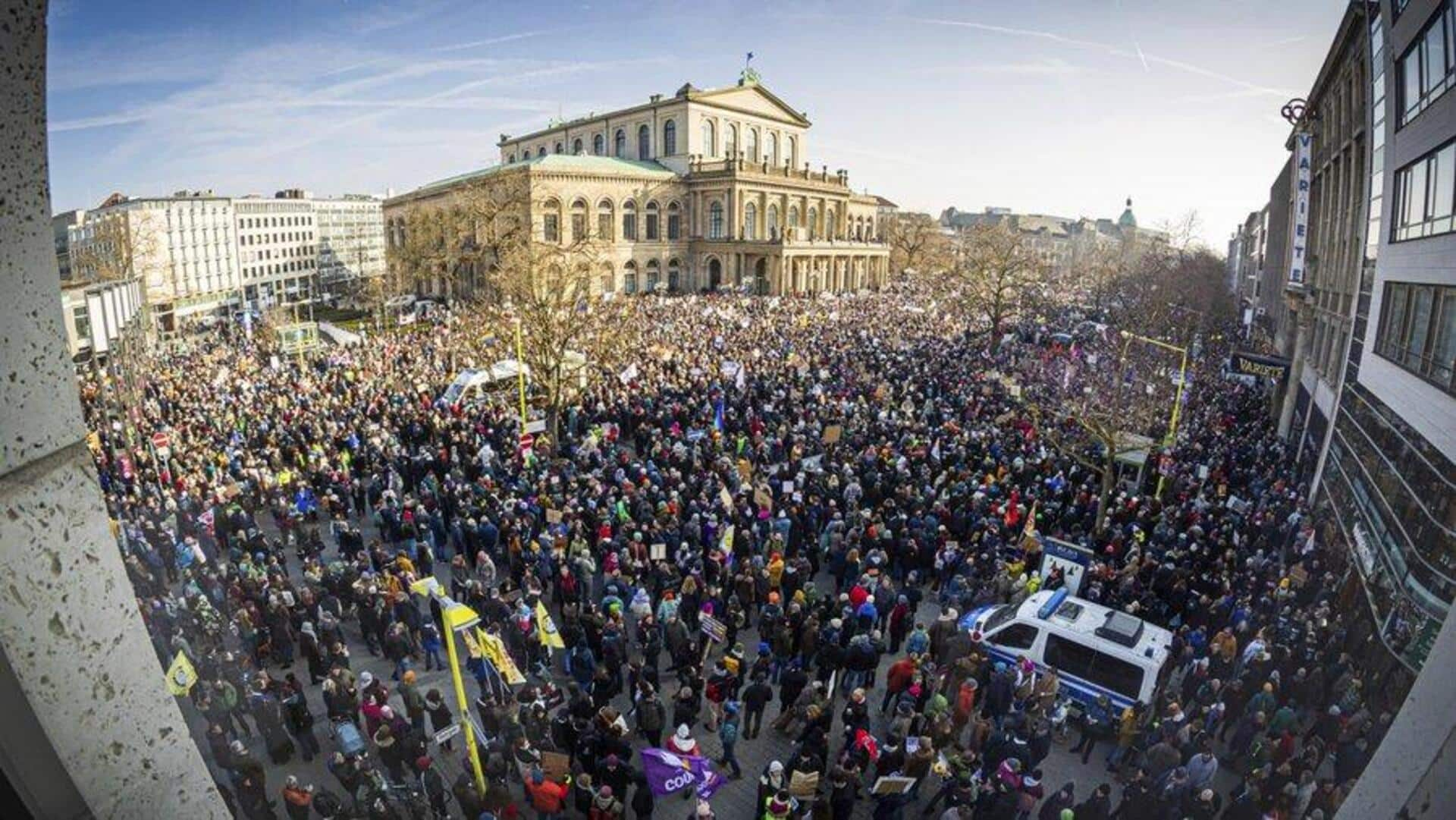
Germany elections: Meet the 4 candidates in race for chancellorship
What's the story
Germany is gearing up for a key election this Sunday after Chancellor Olaf Scholz's coalition government was dissolved.
The election was due in September 2025 but has been advanced after the coalition's collapse.
Immigration control, economic recovery, and the rise of the far-right Alternative for Germany (AfD) party are among the key issues dominating this election.
Candidate profile
Incumbent Chancellor Olaf Scholz seeks 2nd term
The incumbent chancellor, 66-year-old Olaf Scholz of the Social Democratic Party (SPD), is running for a second term.
Since assuming office in December 2021, Scholz has steered through multiple crises, including modernizing Germany's military in the wake of Russia's invasion of Ukraine and preventing an energy crisis.
However, his party is currently polling third with 15% support.
Election frontrunner
Friedrich Merz leads with 30% support in polls
Friedrich Merz, the 69-year-old leader of the Christian Democratic Union (CDU), is currently leading the polls with 30% support.
Merz has steered the party to a more conservative direction since taking over in 2021.
His campaign emphasizes stricter immigration policies and increased defense spending.
On the flipside, he has little political experience, having taken a break from active politics after 2009 to work as a lawyer and head of BlackRock's German branch.
Controversial stance
Far-right candidate Alice Weidel advocates for stricter border control
Economist Alice Weidel, representing the far-right AfD, is making her first bid for Germany's top job.
Since joining AfD soon after its founding in 2013, the 46-year-old has been co-leader of the party's parliamentary group and later became co-leader of the party itself.
Her campaign calls for mass deportations and closing Germany's borders, a position that has made her popular among young voters on social media.
Environmental focus
Robert Habeck champions green economic transition
The 55-year-old candidate for The Greens, Robert Habeck, is also in the race for chancellorship.
Currently serving as Germany's vice chancellor and economy and climate minister, Habeck handles the country's energy issues.
His party supports continued support for Ukraine and advocates for a green economic transition.
However, his performance as a minister has drawn mixed reviews over controversial plans to replace fossil-fuel heating systems with greener alternatives.